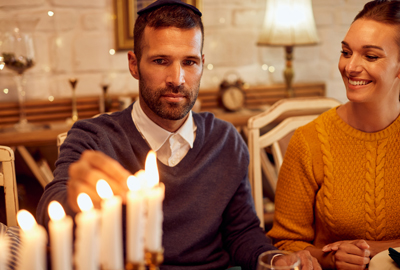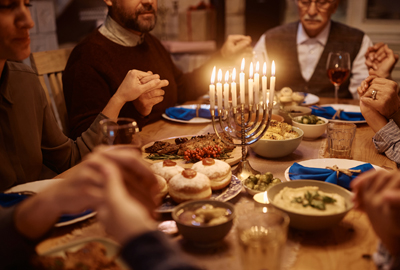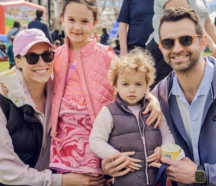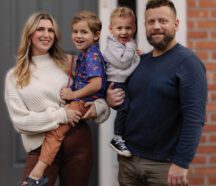By Shula Levin, LCSW-C
The Most Wonderful Time
of The Year…NOT

The weather is changing, the houses are decorating, and according to social media and Hallmark movies, we are in “The Most Wonderful Time of The Year.”
While the holiday season—from Thanksgiving to Chanukah to the New Year — can be full of excitement and good cheer, for people struggling with infertility, this season can better be described as “The Most Triggering Time of The Year.”
While navigating the journey of infertility is physically, mentally and emotionally exhausting 12 months a year, there are specific times and life events that can increase the feelings of hopelessness and frustration.
Since the holiday season is typically centered around the concept of family, children and togetherness, this focus highlights a sense of loss and isolation for those struggling with infertility.
It can act as one giant reminder of what other people have, and what those struggling so desperately want, but do not yet have. While nothing will completely prevent the difficult emotions that may arise during this time, anticipating and preparing yourself for this season can help you navigate it more easily.
Here are some thoughts to help you through this holiday season:
- Avoid Social Media: Your social media pages will likely be flooded with holiday vacations, gifts for children and family photo shoots. You are not obligated to “comment” or “like” any of these posts, and consciously staying away from social media during this time has often served as a way of better managing the difficult emotions.
- Allow Yourself to Say No: You don’t need to go to this family party or that holiday event. You don’t need to answer every curious question or inquiring update. Recognize your own wants and needs and remember that you have every right to set boundaries with your family and friends.
- Treat Yourself to Some Extra Self-Care: If there is ever a time to lean into extra self-love and self-care, it is during the holiday season. Whether it’s treating yourself to a delicious meal, getting a massage or buying yourself a gift, you deserve to feel celebrated and cherished.
Most importantly, know that what you are feeling is normal and valid. There can be intense darkness throughout the fertility journey, and you are allowed to feel sad during this time.

In fact, the main message of Chanukah speaks directly to the struggle of infertility: while life can feel completely bleak and dark, when we light the menorah, that little flame reminds us to hold onto that spark of hope and light.
Seeds of Hope, a program of Jewish Community Services (JCS), recently launched three new groups, offering people in the Jewish community opportunities for meaningful conversations, while garnering support with others who are facing similar fertility experiences.
A closed Facebook group will also allow women to share experiences with others going through fertility challenges.
For more information about Seeds of Hope or any of the groups listed, contact Michelle Goldberg at mgoldberg@jcsbaltimore.org or (410) 843-7355.
The Seeds of Hope program is supported by a grant from The Associated’s Jewish Women’s Giving Foundation.
Shula Levin, LCSW-C, is a clinical therapist at JCS.
Add Impact to Your Inbox
Sign up for our newsletter
Subscribe to our newsletter
The Associated is a home for everyone in the Baltimore Jewish community. We offer several email lists to help people find a community, engage with their peers and support Jewish journeys around the world.
Join Our Mailing List


 Please Wait while we loading your video.
Please Wait while we loading your video.